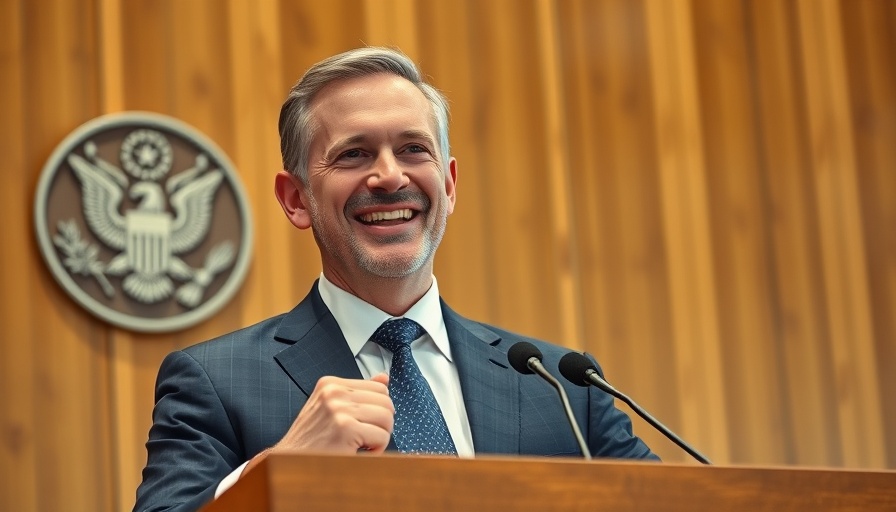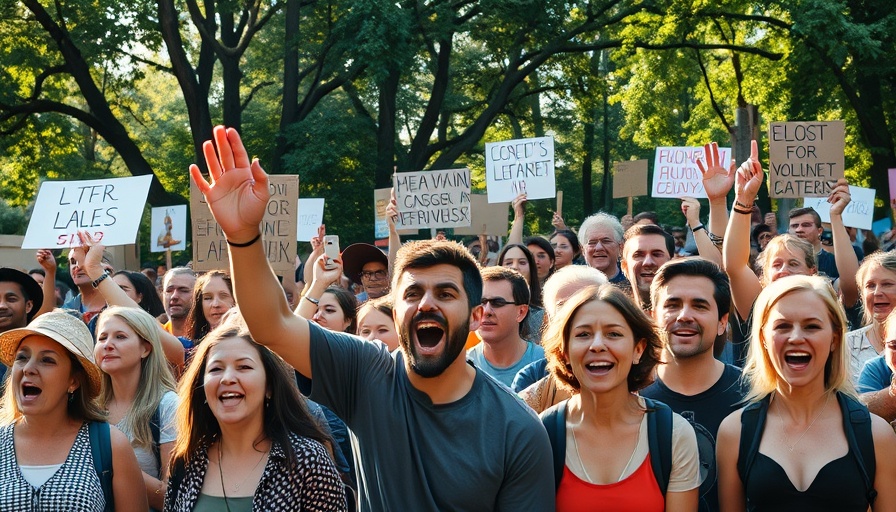
Understanding the Push for Recognition of Islamic Holidays in Texas
As Texas transforms into a melting pot of diverse cultures and beliefs, conversations about religious freedom take center stage. State Rep. Salman Bhojani's recent efforts to broaden the recognition of Islamic holidays in Texas echo a growing call for inclusivity in a state predominantly aligned with Christianity. Just two years after stepping into the Texas Legislature, Bhojani, who represents Euless in House District 92, is championing rights that many feel align with American constitutional values.
Intersection of Faith and Politics in Texas
With a significant population of approximately 300,000 Muslims in Texas, it comes as no surprise that the issue of religious representation has garnered attention. Bhojani's initiatives — allowing Muslim employees to swap Christian holidays for Islamic observances and recognizing Muslim officiants for marriage ceremonies — are pivotal. These measures aim to reflect the realities of a diverse workforce and community, promoting a balance between religious freedom and the protection of individual rights, as Bhojani emphasizes.
The Symbolic Value of Recognition
Bhojani isn't alone in this mission. His previous successes, such as eliminating school exams on religious holidays, show a tangible commitment to recognizing the multi-faceted faith landscape of Texas. By housing holy texts from Judaism, Islam, and Hinduism in the state Capitol's chapel, he sent a strong message about religious inclusivity right from the heart of Texas's political arena. These moves amplify voices often overshadowed by a predominantly Christian-centric narrative.
Community Voice and Representation
Yet, while Bhojani celebrates diversity, he acknowledges that the path ahead is paved with challenges. With 67% of Texans identifying as Christians, some pushback is expected. As he rightly points out, true religious freedom safeguards the rights of all faiths, not just the majority. It's a reminder that legislative decisions should resonate throughout the entire tapestry of faithful citizens, not just a singular thread.
Future of Religious Freedom in Texas
As discussions about the Ten Commandments in schools rise, Bhojani's requests bring to light an essential question: What does it mean to practice religious freedom? As representatives debate the foundations of American religious liberty, the inclusion of a broader range of beliefs becomes imperative. The world is changing, and Texas must adapt to reflect this diversity genuinely.
The push for recognition of Islamic holidays is not merely about political debate; it's a heartfelt plea for respect and acknowledgment of a community that contributes vibrancy to Texas culture. As the dialogue continues, it will be intriguing to see how the legislature addresses these complexities in line with constitutional ideals.
In light of these developments, it's crucial for community members to engage in dialogues around religious freedom, championing an inclusive future for Texas. Join local discussions, attend community meetings, and voice your thoughts to foster understanding and acceptance. Together, we can create a stronger bond within our diverse society.
 Add Row
Add Row  Add
Add 




 Add Row
Add Row  Add
Add 

Write A Comment